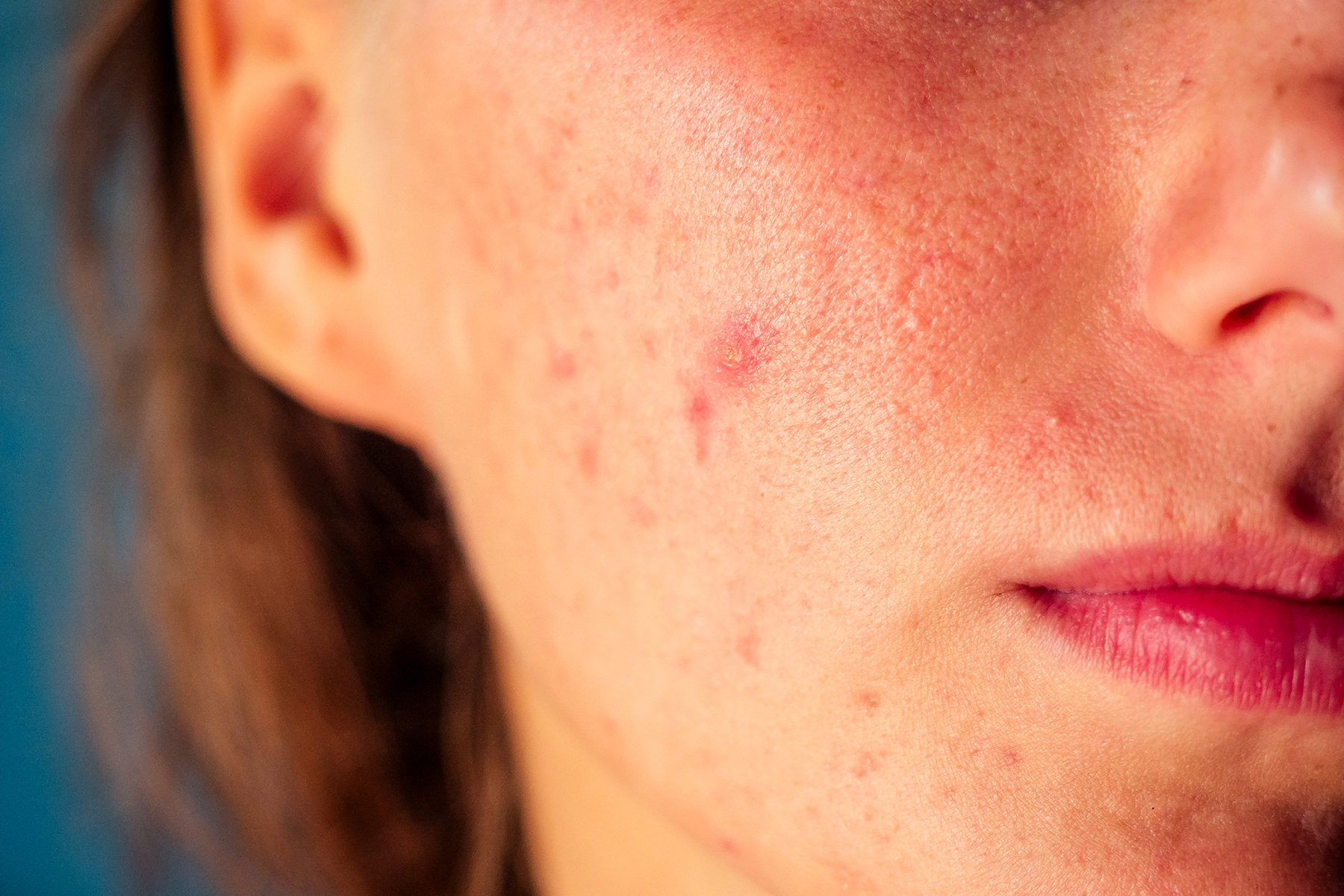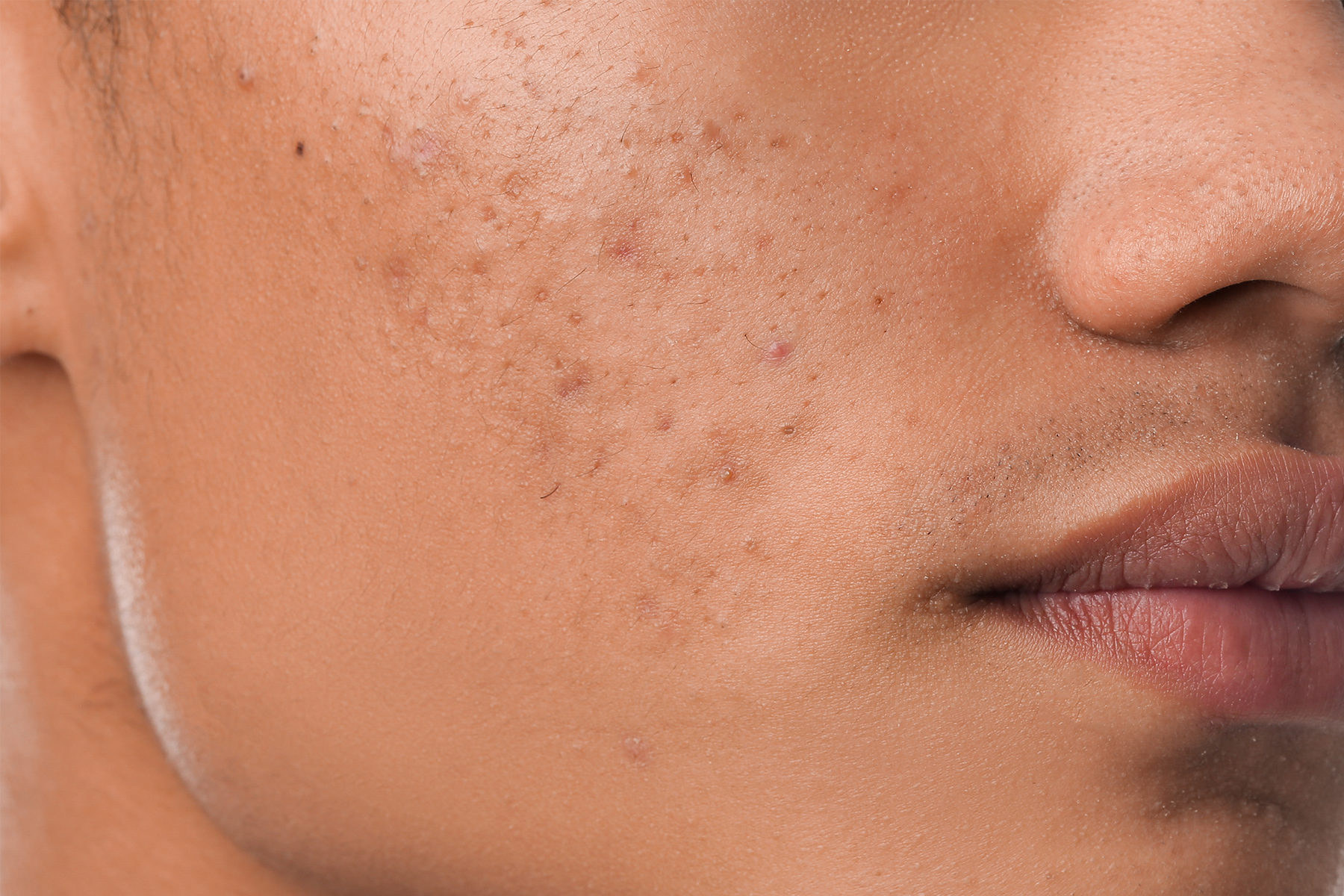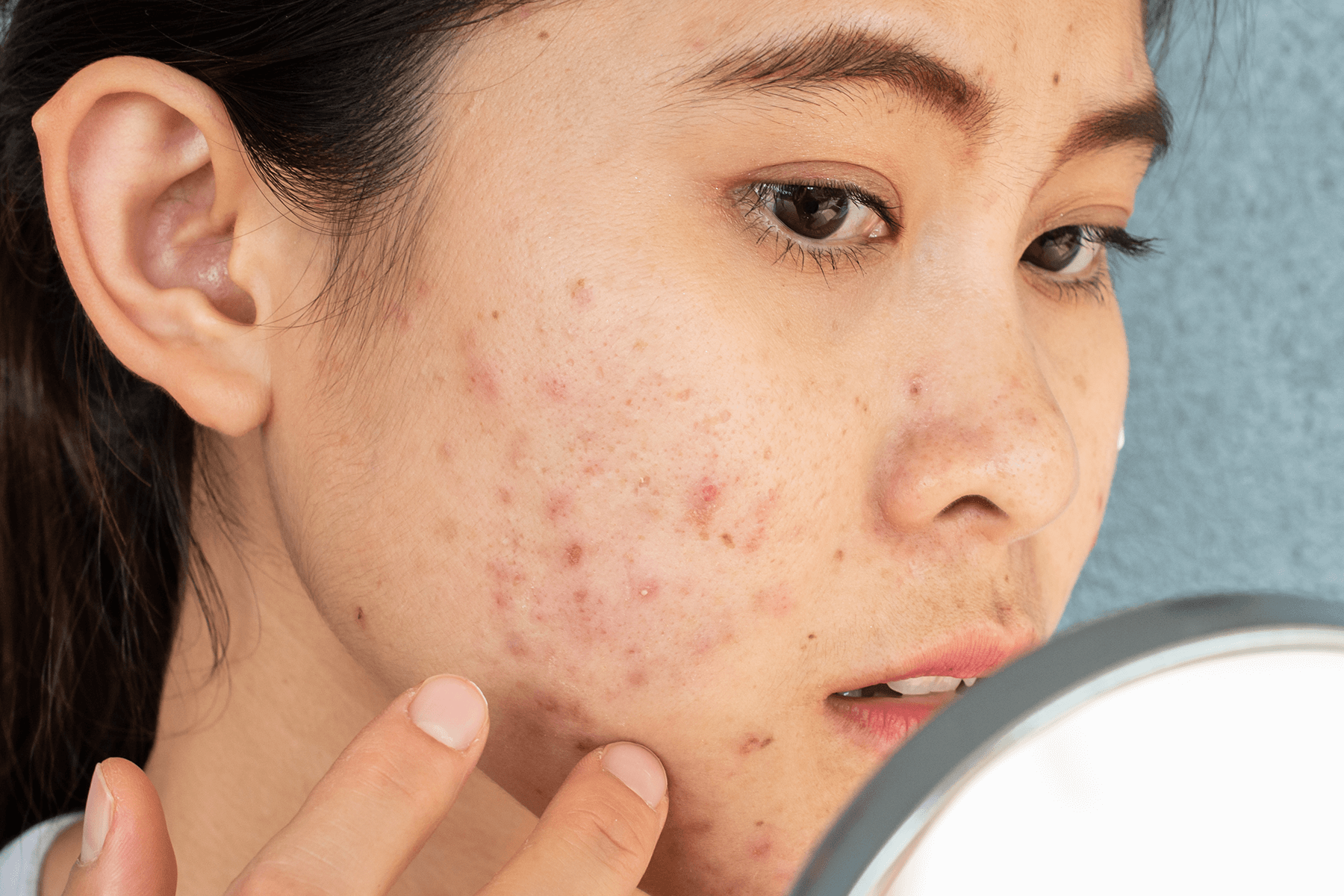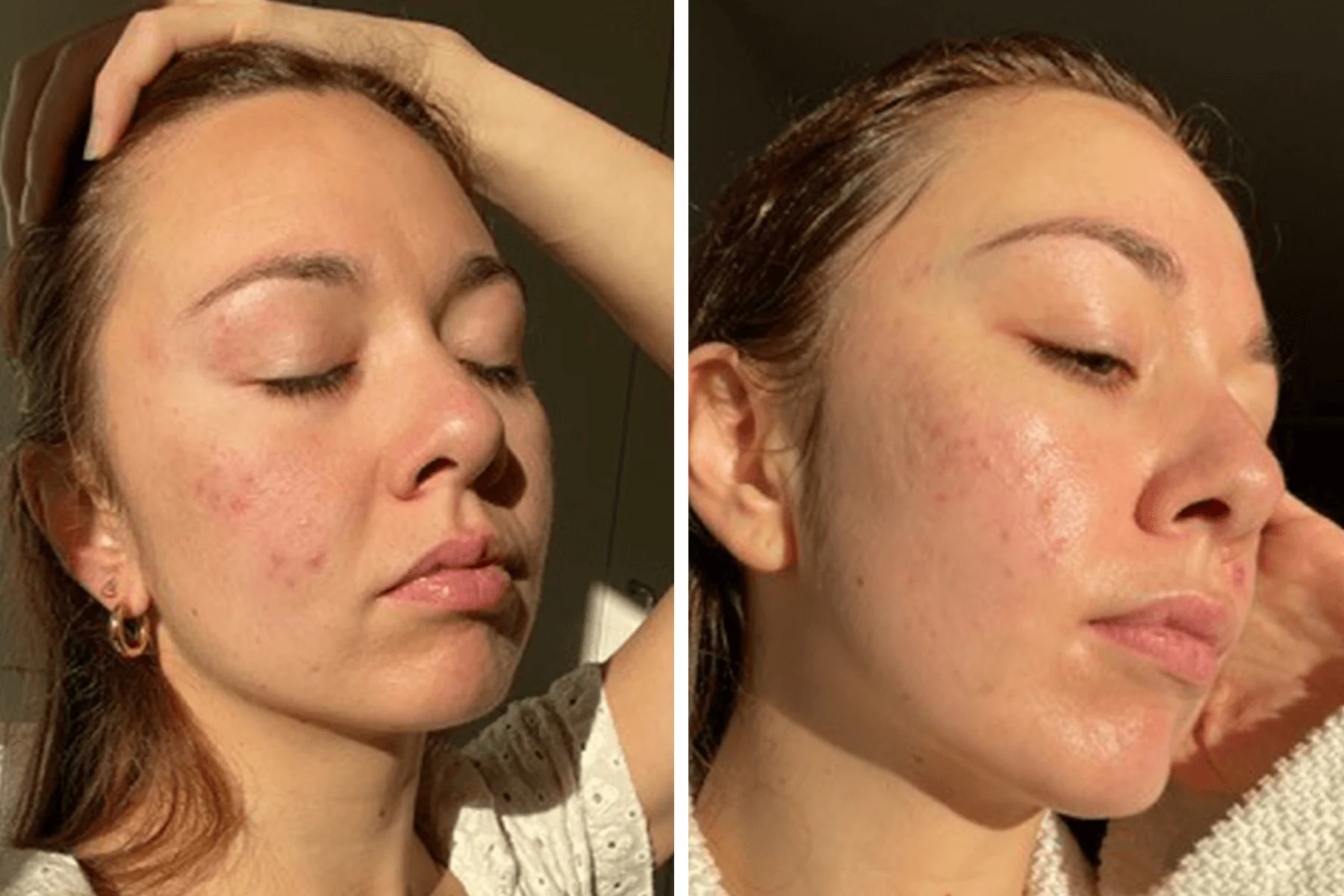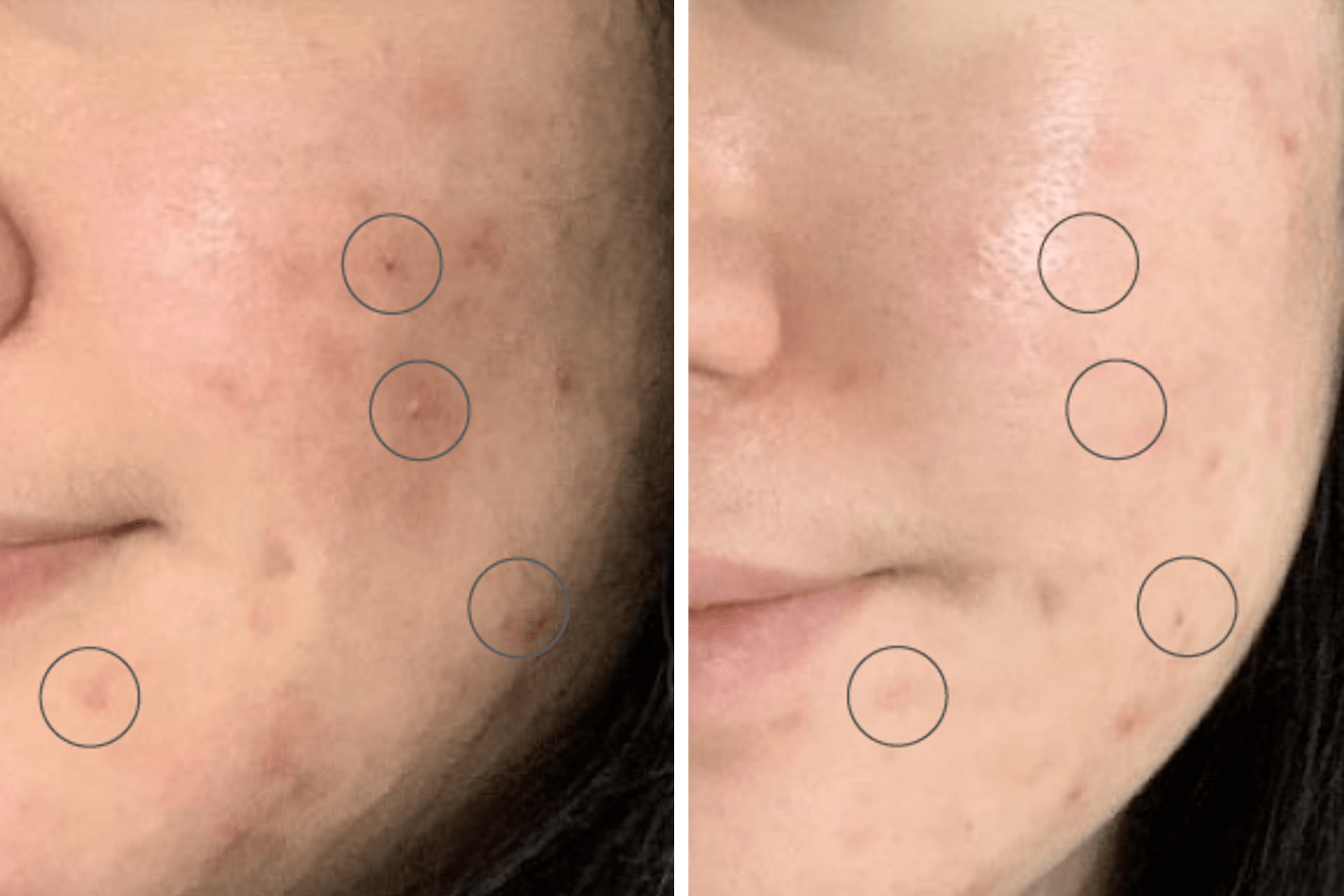The+Source
Whether back-to-school season for you means you’re the one returning to class or your children are, it’s a majorly stressful event, even in the best of times. Add the layer of Covid-related uncertainty (Will sessions be in-person or remote? To mask or not to mask? And what about the vaccine?), and stress levels go up to 11. Obviously, no one wants to deal with an acne outbreak, so the best course of action is the one that heads breakouts off at the pass. The first step is knowing where that new acne is coming from.
Why Acne Rears Its Ugly Head in the Fall
The change of seasons heralds the arrival of PSLs, cozy scarves, and cooler temps. While the crisp outdoors may feel refreshing, the moisture reduction in the air can lead to skin that’s dry and flaky. In a truly unfortunate series of events, these excess dead cells may build up on the skin’s surface, form clumps that mix with the sebum already present, and plug pores. Voilà, autumn acne.
Stress Acne: The Role of Stress (or How to Make a Bad Situation Worse)
There’s very little clinical evidence to demonstrate a correlation between stress and breakouts. Which isn’t to say that anecdotal evidence doesn’t prove otherwise (everyone has their own tale of a gigantic pimple that appeared right before a huge exam/crucial work presentation/date with that person). While much of the science of hormones and how they impact skin is still a beautiful mystery, scientists do know that the oil glands in pores contain receptors for cortisol, the body’s number-one stress hormone. When cortisol levels surge, they can have a domino effect that results in increased oil production. And what are usually considered stress-related breakouts typically occur in the oiliest part of the face (for most, the T-zone).
To bring that back to what we mentioned earlier, you already have extra dead skin cells sitting on your face, due to the drop in temperature. Add to that feeling anxious, and now you also have more oil in the area than you normally do. Little wonder the two together can produce a bumper crop of breakouts.
An Ounce of Prevention Is Worth a Pound of Cure (And All That)
You don’t just have to sit back and accept these fall flare-ups and acne from stress. Instead, consider your options when it comes to treating your skin for acne and breakouts:
Introduce salicylic acid into your skincare
This BHA is oil-soluble, so it absorbs right into pores. Once there, it dissolves clumps of stuck-together cells, to preventing them from clogging the pore passageway.
Niacinamide is also your friend
Vitamin B3, or niacinamide, helps regulate oil production and reduce inflammation. Making sure the ingredient is in your skincare will also help improve skin’s lipid barrier and its ability to retain moisture. This is important because…
Your skin is already dry—don’t make it a raisin
You may not believe this if you’re battling an oil onslaught, but yes, skin is getting dehydrated because fall air is less humid. If you refuse to moisturize it, out of fear that this will intensify acne, you’ll only end up telling your skin to produce even more oil to fix the desiccation situation. And that’s no good. Opt for an oil-free lotion, if you want, but opt for something that moisturizes.
The same goes for cleansers for acne
Be nice to your skin. Instead of stripping it with a harsh face wash, show it that you care by using a gentle formulation.
But you still need to exfoliate
A gentle chemical exfoliator, such as glycolic acid for oily complexions or lactic acid if skin is more sensitive, will sweep away dead surface cells, preventing them from going down pores in the first place.
Retinol also plays a role in acne treatment
Due to its cell turnover-stimulating abilities, retinol, a vitamin A derivative, also helps keep pores clear.
Consider using a blue LED device for acne
The specific wavelength of light emitted from blue LEDs kills the notorious P. acnes bacteria, while leaving the rest of skin untouched. No bacteria means a smaller chance for a breakout to take root.
But It’s Not Just About Your Skincare, TBH
Moments of self-care should also be a part of your daily routine. For one thing, if there is a stress/acne link, freaking out about it and causing yourself all sorts of anxiety as you fret over a topical plan of attack is only going to exacerbate the situation. Also, life is hard! Especially right now! You deserve to go easy on yourself or, at the very least, treat yourself with some TLC. This may be trying out a meditation practice or soaking in a warm bath (Not hot! Dermatologists hate the idea of hot water plus skin) while indulging in a face mask and—for those of age—a glass of wine. Even just getting enough sleep each night can help lower cortisol levels. (The Centers for Disease Control and Prevention recommends at least seven hours of nightly zzzs for adults 18 and older, while those between the ages of 13 and 18 should log between eight and 10 hours each night.) So take a deep breath, and turn off your phone. You got this.
